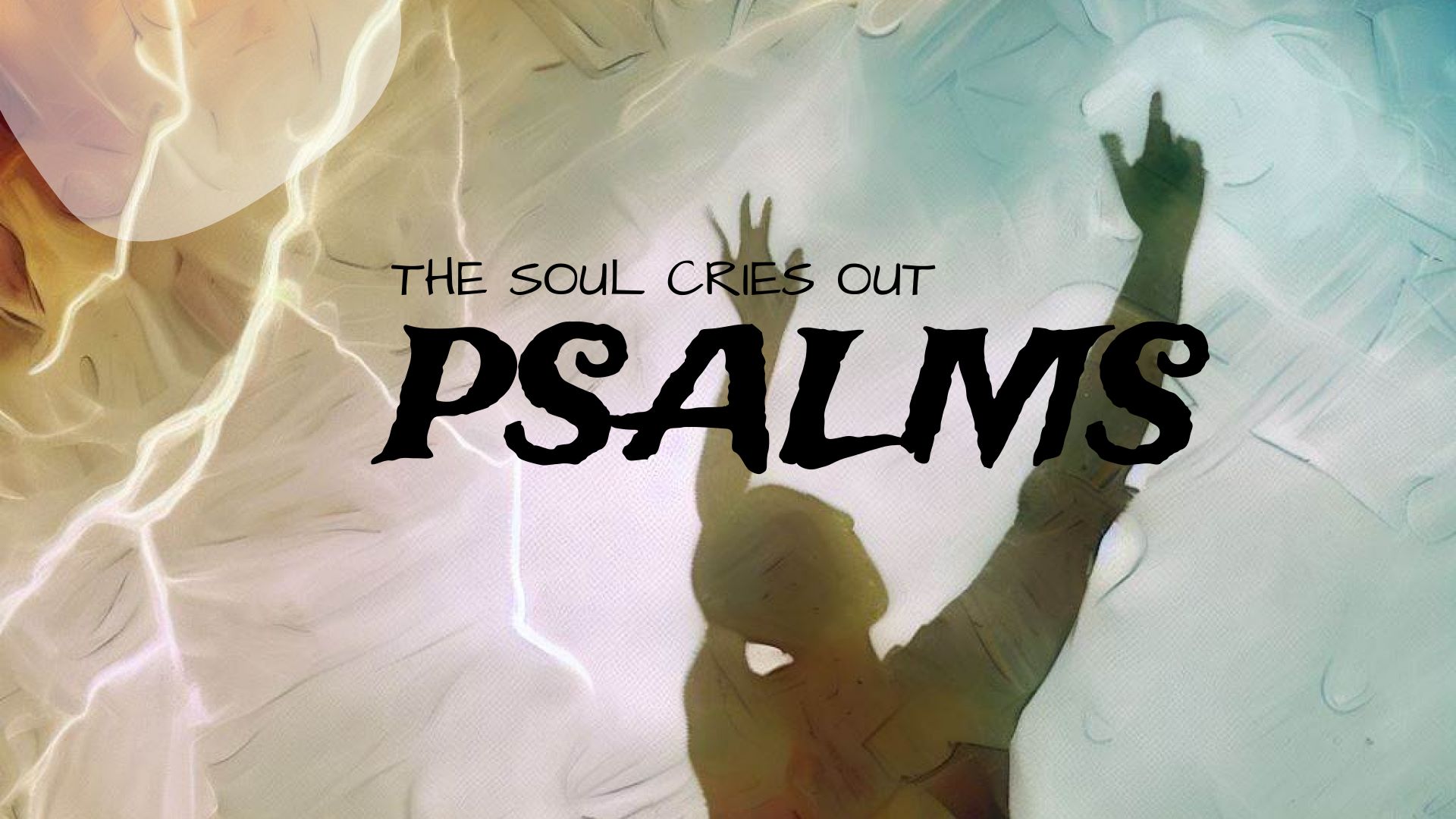When reading through the book of Psalms, one can’t help but notice how often the name “David” pops up. Of the 150 psalms, a full 73 have the following note in their introductions:
- לְדָוִיד
- lĕdāwîd
- (belonging) to David
The Hebrew proposition ל־ (the letter lamed) which begins this phrase is used in a bunch of different ways. How should we understand the point of it here? Did David actually write all these psalms? Or, as Robert Alter’s translates it, does the phrase mean “A David psalm.” That is, it just tells us that somewhere along the line of history people believed that David was somehow associated with these psalms—maybe as author, maybe as inspiration.
These same questions apply—to a lesser extent—to the psalms which name other authors: Moses, Solomon, Asaph, Sons of Korah, Heman, or Ethan. Did they really write these psalms?
Here is the short answer: there is no definitive way to prove they did or they didn’t.
A longer answer is worth thinking about.
The “no, David did not write this psalm” arguments
To spare the long, winding, circuitous, and generally self-referential arguments scholars make about the issue, here is a brief summation of the main arguments people call upon to support the position that David didn’t write the psalms attributed to him:
The dating of individual psalms has long been a region of treacherous scholarly quicksand. The one safe conclusion is that the writing of psalms was a persistent activity over many centuries. The Davidic authorship enshrined in Jewish and Christian tradition has no credible historical grounding. It was a regular practice in the later biblical period to ascribe new texts to famous figures of the past. Although many psalms include the name David in the superscription supplied by the editors, the meaning of the Hebrew particle le that usually prefixes the name is ambiguous. It is conventionally translated as “of,” and in ancient seals and other objects that have been discovered, it does serve as a possessive. But le also can mean “for,” “in the manner of,” “suitable to,” and so forth. The present translation seeks to preserve this ambiguity by translating mizmor ledawid as “a David psalm.” David was no doubt identified by the editors of the collection as the exemplary psalmist because in his story, as told in 1 and 2 Samuel, he appears as a poet and the player of a stringed instrument, and at the end of the narrative is given the epithet “the sweet singer of Israel.” But the editors themselves ascribed psalms to different poets—Asaph, Ethan the Ezrahite, Heyman the Ezrahite, the Korahites, and others. One cannot categorically exclude the possibility that a couple of these psalms were actually written by David, though it is difficult to gauge the likelihood (and some scholars altogether doubt David’s historicity).”
Robert Alter, The Book of Psalms: A Translation with Commentary, 13
In short, Alter notes it is technically possible that David did write some of these, but he (along with lots of scholars) view the evidence as strongly against such a conclusion.
The “yes, David wrote this psalm” arguments
There are three core arguments suggesting that David wrote the psalms attributed to him.
“of David”
First, consider the example from Habakkuk 3.1:
A prayer of Habakkuk the prophet. On shigionoth.
In Hebrew, the “of Habakkuk” is the same construction as the “of David” we see in our psalms. One scholar notes:
“Habakkuk seems to have employed a recognized formula for designating oneself as the author of a psalmic prayer.”
James M. Hamilton, Jr. Psalms 1-72, 44
The prayer in Habakkuk clearly is Habakkuk’s prayer. Since Habakkuk is close in time and culture to the time when the psalms were composed, this serves as reasonable evidence that the “of David” formula intends to claim that David is the author of those psalms in whose introduction it appears.
superscriptions
Second, the superscriptions are part of the text. Most of the psalms have some sort of superscription. Like these:
- Psalm 18: For the director of music. Of David the servant of the Lord. He sang to the Lord the words of this song when the Lord delivered him from the hand of all his enemies and from the hand of Saul. He said: (NIV)
- Psalm 19: For the director of music. A psalm of David. (NIV)
You will note that in English Bibles these are not given verse numbers. The lack of verse numbers can give the mistaken impression that these superscriptions are not an original part of the text (in the Hebrew, they are numbered, as well as in every other language I have checked). So, what are these?
Simply put, every ancient version of the text of the Old Testament we have, in whatever language we have it, has these superscriptions in some form or another. While that does not prove that they are original to the poems they go with, it does strongly indicate that the book of Psalms as a canonical book of the Bible has never not had the superscriptions. Which means, among other things, that all the information in them is quite ancient.
That doesn’t prove that David wrote the psalms that say “of David.” But it does suggest that there was never a time, for as long as we can go back in recorded history, where people did not believe and pass on that David wrote those 73 psalms which say “of David” at the beginning. This ancient tradition supports that David was, in fact, the author of the psalms in question.
biblical evidence
Finally, the biblical evidence robustly supports understanding David as the actual author of these psalms (and likewise, the other listed authors). I bring this up last because the strength of this argument rests entirely on the general view of Scripture which you bring to the question.
Within the New Testament, we see various people claiming that David wrote various of the psalms which are ascribed to him in the book of Psalms. Jesus (Mark 12.35-37), Peter (Acts 1:16; 2.25), and Paul (Rom 4:6) all do so.
Of course, it is possible that they were passing on knowledge which they had learned and assumed and which everyone more or less agreed upon. And this evidence from the New Testament authors doesn’t mean that we can verify David as the author of those 73 psalms without a doubt.
For those of a confessional attitude that says, “God said it, I believe it, and that settles it for me,” this information from the New Testament settles the question. At the very least, the information from the New Testament testifies to a long standing and continuous tradition amongst the Jewish and then early Christian believers accepting as true the superscriptions we find in the psalms.
Does it matter: no, and yes
In closing out this brief reflection on the superscriptions of the psalms, we ask ourselves, “does it really matter?” The answer to that question is no… And yes.
First, in one sense it doesn’t matter. Many of the books of the Bible are formally anonymous. Many of the psalms within the book of Psalms are anonymous. Whoever it was who spent the painstaking time to organize the whole book of Psalms remains formally anonymous. That we can’t pin a text to a specific historical person is not a deep problem.
In another sense, Davidic authorship does matter. While we often cherry pick psalms as disconnected praises or laments to God, the whole book is deeply and intricately structured. Noting the way that the psalms of David are spread throughout the book of Psalms suggests that the final editors put the book together to reflect the life of David. And especially to reflect how the life of David demonstrates the hope God’s people have in a coming king from his line who will bring God’s people into the full blessings of his covenant with them. James M. Hamilton, Jr., writes:
“The collage of the Psalter is not merely about David’s own life but God’s purposes in the world and how and where David fits in that wider project.”
Psalms, Psalms 1-72, 51
For my own part, I lean toward assuming the superscriptions are historical. That is, that they preserve for us through traditions across the generations actual notes about who wrote what and, on occasion, what the life circumstances of the composition were. I couldn’t dogmatically prove that, or a great many other things which I believe. But there is rational evidence which at least points in this direction both inside and outside the book of Psalms.



